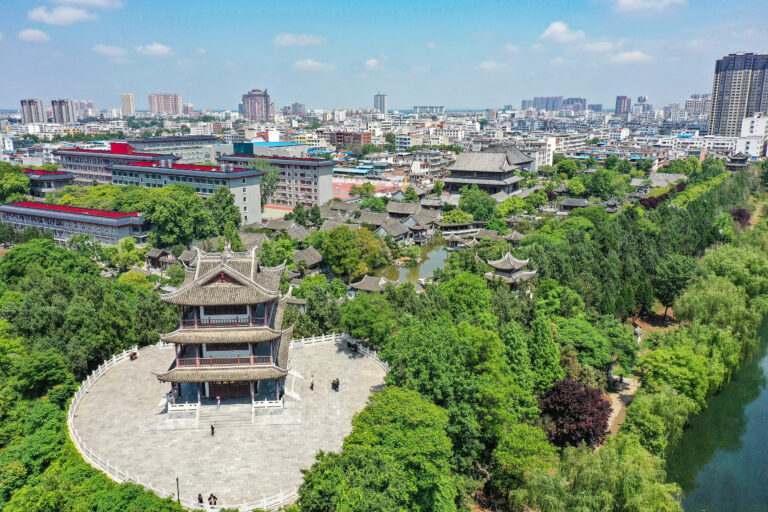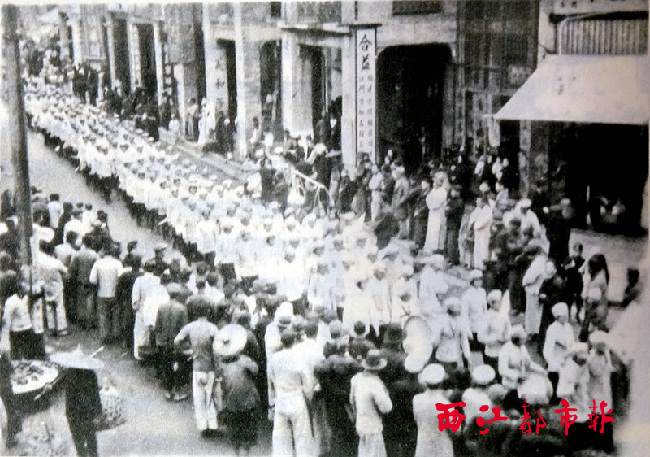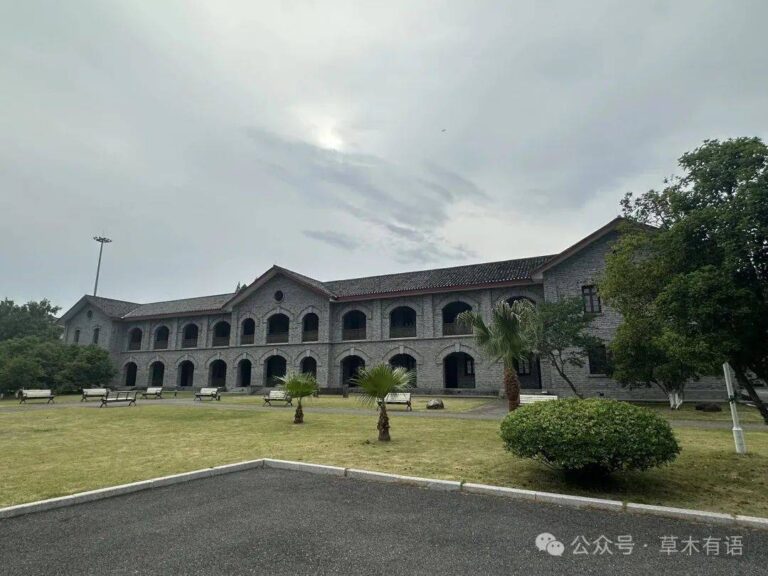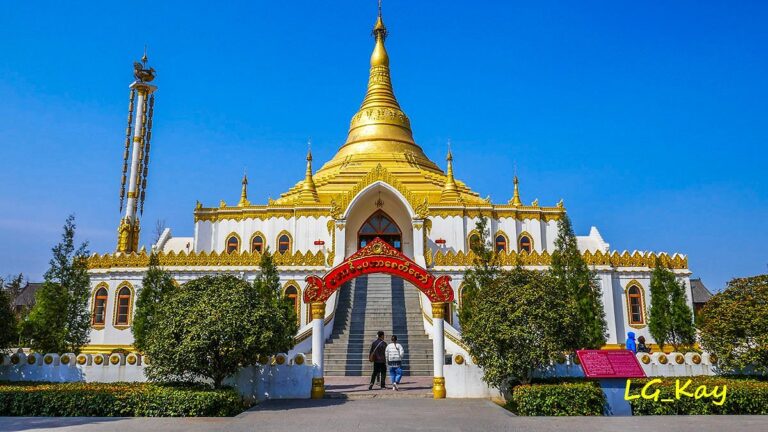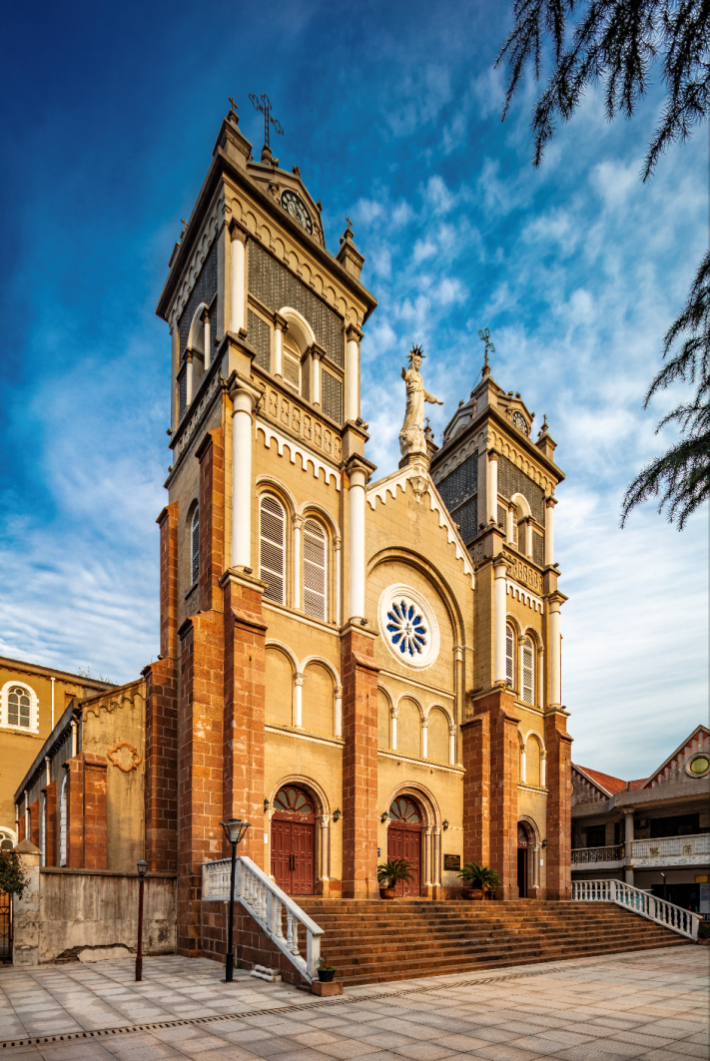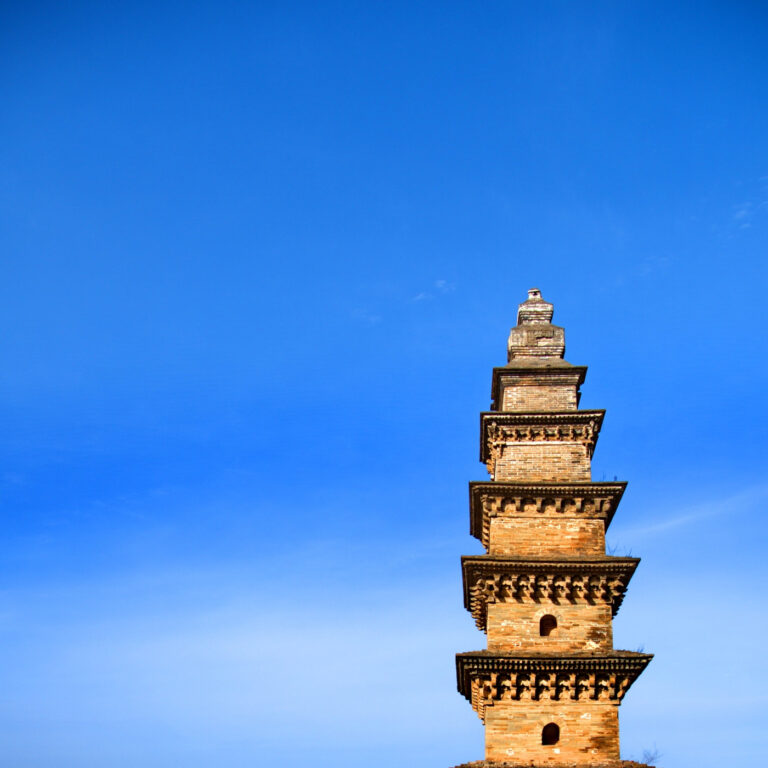Discovering Taizhou Enze Yiju Jiuzhi: A Hidden Gem in Zhejiang
An Essential Guide to Visiting Taizhou Enze Yiju Jiuzhi
In This Guide
- An Essential Guide to Visiting Taizhou Enze Yiju Jiuzhi
- The Rich History of Taizhou Enze Yiju Jiuzhi
- Main Highlights: What to See at Taizhou Enze Yiju Jiuzhi
- Planning Your Visit: A Practical Guide
- Tickets, Hours, and Booking
- How to Get There
- Local Cuisine and Accommodation
- Frequently Asked Questions
- Final Thoughts on Your Trip
Nestled in the historic heart of Taizhou, the Enze Yiju Jiuzhi (恩泽医局旧址) stands as a testament to the rich tapestry of medical history and cultural exchange in China. This former medical institution, built in 1901 by British missionary Stanley Noel Babington, represents one of the earliest Western-style hospitals in the region. It is not just an architectural gem but also a pivotal site in the evolution of modern medicine in Taizhou, often referred to as the birthplace of Western medicine in the area.
The Enze Yiju Jiuzhi is situated within the charming ancient city of Linhai, among a backdrop of storied streets and traditional architecture. Its distinctive design, characterized by Gothic elements and intricate stone carvings, reflects a unique blend of Western influences and local craftsmanship. The complex comprises three main buildings connected by elegant corridors, creating a serene atmosphere that invites exploration.
Over the years, this historical site has witnessed remarkable events, including the compassionate care provided to American airmen during World War II, which underscores the international ties forged through healthcare and humanitarian efforts. Despite periods of neglect, the Enze Yiju Jiuzhi has undergone significant restoration, earning recognition as a key cultural heritage site in China. Today, it serves not only as a museum for medical history enthusiasts but also as a center for education and cultural promotion, embodying the spirit of resilience and the enduring legacy of medical practice in Taizhou.
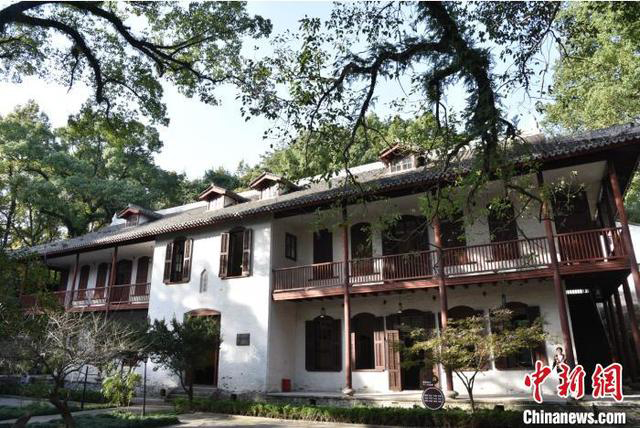
Taizhou Enze Yiju Jiuzhi.
Visitors to this site will find themselves immersed in stories of courage, compassion, and cultural exchange, making the Enze Yiju Jiuzhi a must-visit destination for those wishing to understand the intersections of medicine, history, and community in this vibrant region of Zhejiang Province.
The Rich History of Taizhou Enze Yiju Jiuzhi
Nestled in the ancient town of Linhai, the Enze Yiju Jiuzhi, or Enze Medical Bureau, stands as a testament to the rich tapestry of medical history in China. Established in 1901 by British missionary Dr. Stanley Noel Babington, this building represents one of the earliest Western-style hospitals in the region and marks a significant milestone in the introduction of Western medicine to Taizhou.
Originally part of a missionary initiative, the Enze Medical Bureau was constructed during a time when Western medical practices were beginning to take root in China. It was one of three sister hospitals associated with the Zhejiang Anglican Diocese, alongside the Guangji Hospital in Hangzhou and the Renze Hospital in Ningbo. While the other two institutions have since evolved into modern healthcare facilities, the Enze Medical Bureau remains a rare relic of this pioneering era in healthcare.
Throughout its history, the Enze Medical Bureau faced numerous challenges. Following its establishment, it transitioned into various roles, including serving as a health recovery department for Taizhou Hospital in 1951. However, as time progressed, the building fell into disrepair, with significant structural issues threatening its existence. By the early 2000s, it had become dilapidated and largely forgotten.
A pivotal moment came in 2001 when Dr. Chen Haixiao, then the director of Taizhou Hospital, stumbled upon records referencing the Medical Bureau’s historical significance. Recognizing its potential as a cultural and educational landmark, he petitioned the local government for its restoration. This initiative marked the beginning of a comprehensive restoration project aimed at preserving the building’s historical integrity.
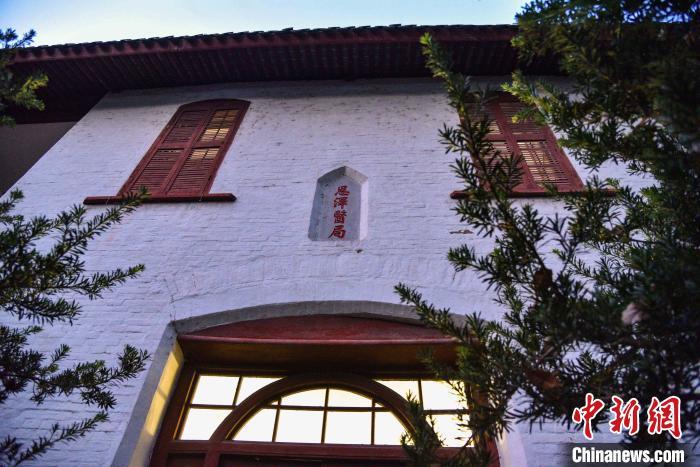
Taizhou Enze Yiju Jiuzhi.
The restoration process was meticulous, guided by principles set forth in China’s cultural heritage laws to ensure that the structure’s original state was maintained. This effort culminated in the relocation of residents who had been living in the Bureau and the careful repair of its features, including its distinctive Gothic-style windows and vaulted ceilings.
Today, the Enze Medical Bureau is not just a historical site; it houses a wealth of artifacts and documents, including over one hundred well-preserved calligraphic works that narrate the struggles and philosophies behind its founding. Among the notable events in its storied past is the heroic rescue of American airmen by the medical staff in 1942, a poignant moment that underscores the Bureau’s role during significant global conflicts.
In recognition of its historical and cultural significance, the Enze Medical Bureau has been designated a key cultural relic protection unit in Linhai and has received national status as a protected site. As a base for health culture promotion and patriotic education, it continues to serve as a bridge between the past and present, inviting visitors to explore the profound impact of Western medicine on Chinese healthcare.
Through its rich history, the Enze Medical Bureau stands as a symbol of resilience and adaptability, embodying the spirit of medical advancement and cross-cultural exchange that has shaped the region’s health landscape over the past century.
Main Highlights: What to See at Taizhou Enze Yiju Jiuzhi
Nestled in the heart of Taizhou, the Enze Yiju Jiuzhi, or Enze Medical Bureau, is a testament to the region’s rich medical heritage and historical significance. Here are the key highlights that make this site a must-visit for anyone interested in the fusion of culture, history, and medicine.
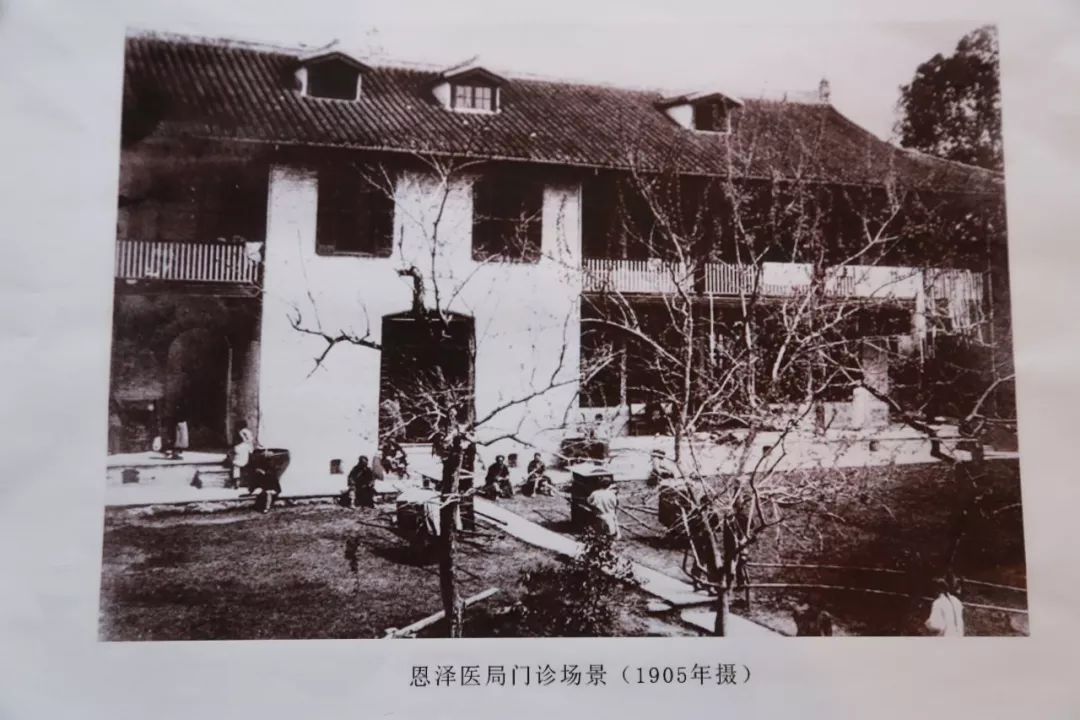
Taizhou Enze Yiju Jiuzhi.
-
Historical Significance: Established in 1901 by British missionary Dr. Stanley Noel Babington, the Enze Medical Bureau was one of the first Western-style hospitals in Taizhou. It served as a pioneering institution for modern medicine in the area and played a crucial role in shaping the city’s healthcare landscape.
-
Architectural Marvel: The complex features a unique blend of Western architectural styles, characterized by its three distinctive buildings connected by corridor bridges. The main building, adorned with Gothic-style windows and a pointed stone plaque bearing the name “恩泽医局” (Enze Medical Bureau), captures the essence of early 20th-century design.
-
Cultural Heritage: The site is more than just a hospital; it embodies the spirit of cross-cultural exchange and cooperation during a transformative period in Chinese history. It is one of the few remaining structures of its kind that reflects the influence of Western medicine in China.
-
Restoration Efforts: After falling into disrepair, the Enze Medical Bureau underwent significant restoration efforts initiated in 2001, led by Chen Haixiao, then-director of Taizhou Hospital. The meticulous restoration has preserved its historical integrity and showcases its original features, making it a key cultural heritage site.
-
Commemorative Stories: The Bureau has been the backdrop for numerous historical events, including the treatment of American airmen during World War II. Artifacts and documents, such as letters of gratitude from U.S. President George H.W. Bush, highlight the international friendships forged during times of conflict.
-
Cultural and Educational Activities: Today, the Enze Medical Bureau serves as a patriotic education base and a cultural promotion site in Zhejiang Province. It houses over a hundred preserved calligraphy works that narrate the challenges and philosophies of the medical staff from its early days.
-
Recognition and Protection: Designated as a key cultural relic protection unit in 2011, and later as a national protected site, the Enze Medical Bureau stands as a symbol of Taizhou’s commitment to preserving its historical and cultural legacy.
Whether you are a history enthusiast, a medical professional, or simply a curious traveler, a visit to the Enze Yiju Jiuzhi offers a unique glimpse into the integration of Western medicine in China and the enduring power of cultural exchange.
Planning Your Visit: A Practical Guide
Practical Guide to Visiting Taizhou Enze Yiju Jiuzhi
Location and Accessibility
The Enze Yiju Jiuzhi, or Enze Medical Bureau, is located at 43 Wantian Terrace in the Cultural Community of the ancient city of Linhai, Taizhou, Zhejiang Province. It is easily accessible via local transportation options, including buses and taxis. The site is situated within a historic area that is rich with attractions, making it a convenient stop for those exploring Linhai.
Opening Hours and Admission
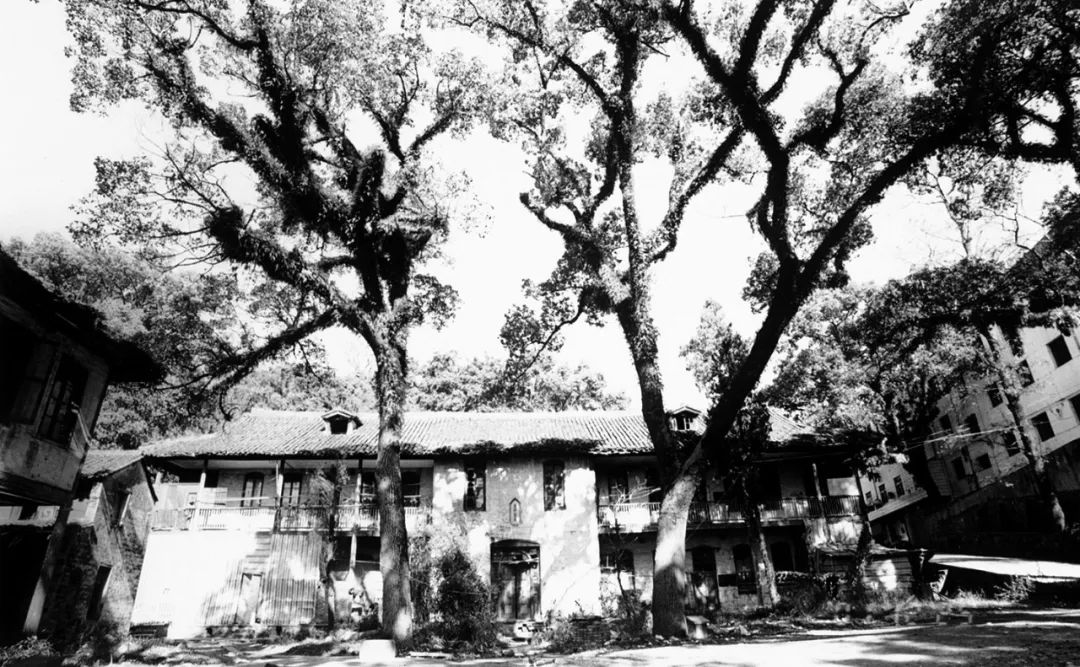
Taizhou Enze Yiju Jiuzhi.
Enze Yiju Jiuzhi is open to visitors throughout the week, typically from 9:00 AM to 5:00 PM. However, it is advisable to check for any special holiday hours or scheduled events that may affect access. Admission to the site is generally free, though donations for preservation efforts are welcome.
What to Expect
Visitors will find a beautifully restored complex consisting of three Western-style buildings, which represent one of the earliest Western hospitals established by missionaries in China. The main building features a striking facade with Gothic-style windows and an intricate peaked roof. The interior houses over 100 well-preserved calligraphic works that reflect the institution’s rich history and the challenges faced in establishing medical care in the region.
Historical Significance
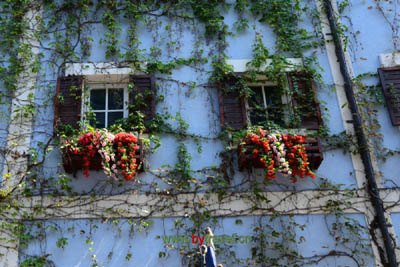
Taizhou Enze Yiju Jiuzhi.
The Enze Medical Bureau is not just a building; it’s a monument to the evolution of Western medicine in Taizhou and a testament to international cooperation during critical historical moments, including its role in rescuing American airmen during World War II. The site has been recognized as a national cultural heritage site, highlighting its importance in local and national history.
Exhibitions and Activities
Inside the Enze Medical Bureau, visitors can explore exhibits detailing its historical significance, including stories of the medical missions and the evolution of healthcare in the region. Guided tours are often available, providing deeper insights into the architectural features and the narratives embedded within the walls.
Nearby Attractions
While visiting the Enze Medical Bureau, consider exploring other nearby historical sites in Linhai, such as the Taizhou Ancient City Wall and the picturesque Donghu Lake. The area is also known for its traditional architecture, vibrant markets, and local culinary delights, offering a well-rounded cultural experience.
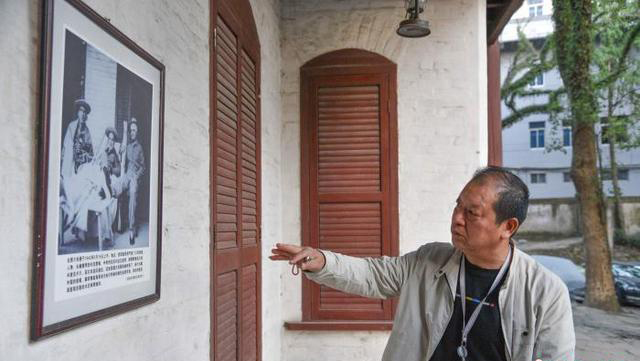
Taizhou Enze Yiju Jiuzhi.
Visitor Tips
- Photography: The exterior of the Enze Medical Bureau is particularly photogenic, so don’t forget your camera. However, be respectful of the interior rules regarding photography.
- Dress Code: Wear comfortable clothing and shoes, as you may spend a fair amount of time walking around the site and nearby attractions.
- Local Cuisine: After your visit, indulge in local delicacies at nearby restaurants. Taizhou is known for its seafood and traditional Zhejiang dishes.
- Language: While some staff may speak English, learning a few basic Mandarin phrases can enhance your experience and interaction with locals.
Conclusion
Visiting the Enze Yiju Jiuzhi provides a unique glimpse into the convergence of Western medical practices and local traditions in China. It stands as a symbol of resilience and cooperation in the face of adversity, making it a must-see for history enthusiasts and travelers alike.
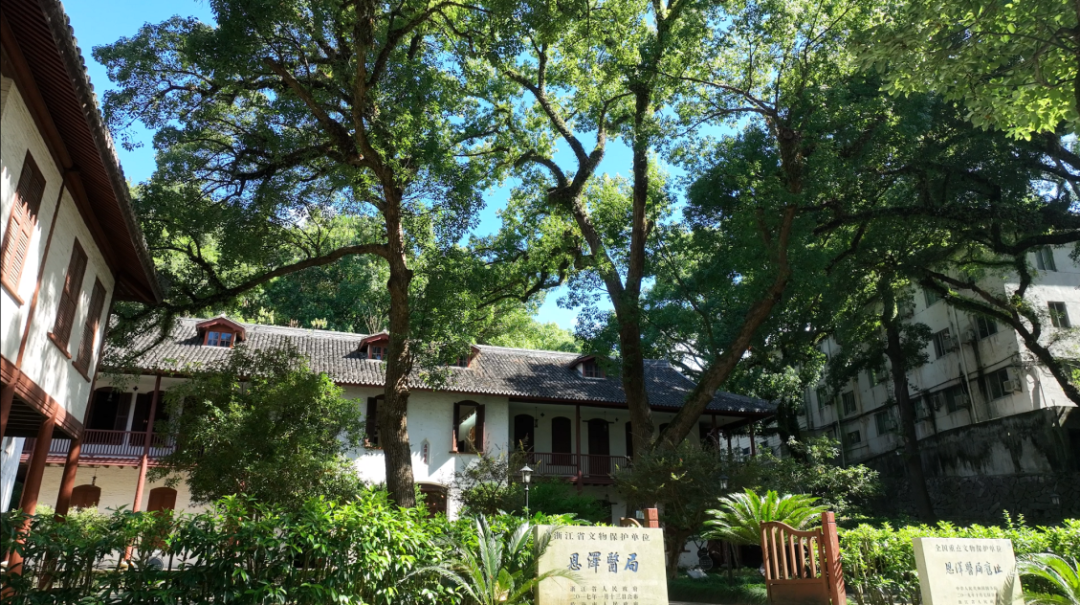
Taizhou Enze Yiju Jiuzhi.
Tickets, Hours, and Booking
Visiting the Taizhou Enze Yiju Jiuzhi (恩泽医局旧址) is a unique opportunity to explore a significant piece of medical history in China. This historical site, which is located at No. 43, Wangtiantai, Cultural Community, Linhai City, Taizhou, offers a glimpse into the early establishment of Western medicine in the region.
Admission Fees
- Adults: 30 CNY
- Children (under 1.2 meters): Free
- Students (with valid ID): 15 CNY
- Seniors (over 60 years): 15 CNY
Opening Hours
- Daily: 9:00 AM – 5:00 PM (Last entry at 4:30 PM)
Booking Information
Tickets can be purchased on-site at the entrance. It is advisable to arrive early, especially on weekends and holidays, to avoid long wait times.
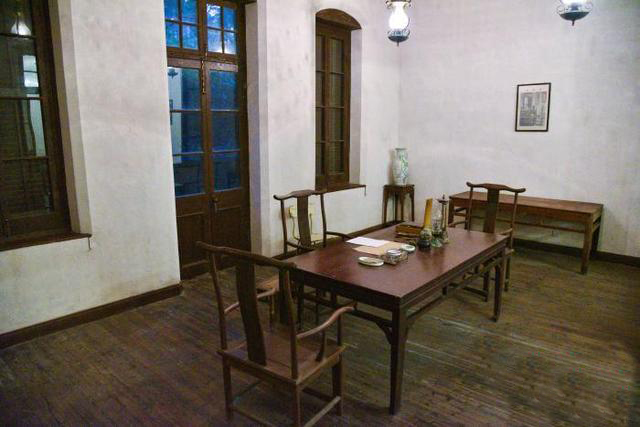
Taizhou Enze Yiju Jiuzhi.
Special Notes
- Group discounts may be available for educational institutions and organizations; inquire at the ticket counter for details.
- Visitors are encouraged to respect the historical integrity of the site and follow any posted guidelines during their visit.
Exploring the Enze Yiju Jiuzhi not only enriches your understanding of Taizhou’s medical history but also allows you to appreciate the architectural beauty and cultural significance of this remarkable establishment.
How to Get There
Getting to Taizhou Enze Yiju Jiuzhi (恩泽医局旧址) is a delightful journey that offers a glimpse into both the historical significance of the site and the surrounding beauty of Taizhou. Located in the ancient city of Linhai, the Enze Medical Bureau is easily accessible through various modes of transportation.
By Air
The nearest major airport to Taizhou is Taizhou Luqiao Airport (HYN), located approximately 40 kilometers from the city center. The airport serves domestic flights, connecting Taizhou to major cities in China. From the airport, you can hire a taxi or use ride-hailing services to reach the Enze Medical Bureau. The journey may take around 50 minutes, depending on traffic.
By Train
Taizhou is well-connected by train, making it convenient for travelers from neighboring cities. The Taizhou Railway Station is the main hub, with high-speed trains available from major cities like Hangzhou, Shanghai, and Nanjing. Upon arriving at Taizhou Railway Station, you can take a local bus or taxi to Linhai City, which is approximately 30 kilometers away. The bus ride to Linhai takes about 40 minutes, while a taxi may take around 30 minutes.
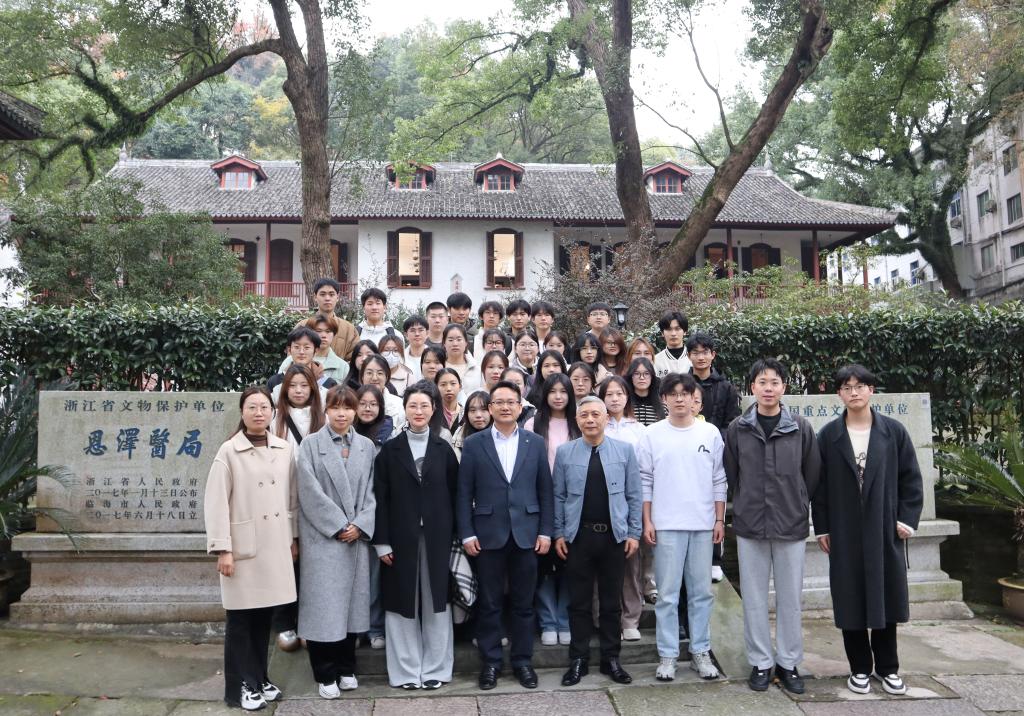
Taizhou Enze Yiju Jiuzhi.
By Bus
For those traveling within Zhejiang Province, long-distance buses are available from various cities to Linhai. The Linhai Bus Station is centrally located and serves as a good starting point for reaching the Enze Medical Bureau. From the bus station, you can take a taxi or a local bus. The distance to the site is about 3 kilometers, which typically translates to a 10-15 minute drive.
By Car
If you prefer to drive, renting a car can provide flexibility and convenience. The Enze Medical Bureau is located at 43 Wangtiantai, Cultural Community, Ancient City Street, Linhai. The site is accessible via the G15 highway, with clear signage directing you to Linhai City. Parking may be available near the site, but it’s advisable to check in advance.
Local Transportation
Once in Linhai, local transportation options include buses, taxis, and bicycle rentals. The city has a reliable bus network, and taxis are readily available. For a more leisurely exploration, consider renting a bicycle to enjoy the scenic streets and nearby attractions.
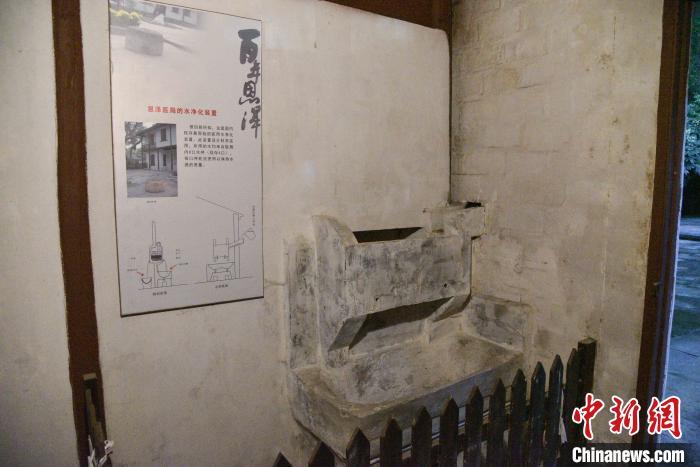
Taizhou Enze Yiju Jiuzhi.
Accessibility
The Enze Medical Bureau is open to visitors, and its historical significance makes it an important stop in Linhai. If you have any specific accessibility needs, it’s recommended to contact the site in advance to ensure a comfortable visit.
In summary, whether you arrive by air, train, bus, or car, reaching Taizhou Enze Yiju Jiuzhi is straightforward. Embrace the journey as you delve into the rich history of this remarkable site, which stands as a testament to medical advancements and cross-cultural connections in the region.
Local Cuisine and Accommodation
When visiting the historic site of Taizhou Enze Yiju Jiuzhi, not only can you immerse yourself in the rich medical history of the region, but you can also indulge in the vibrant culinary scene and find comfortable accommodations nearby. Here’s a guide to enhance your experience.
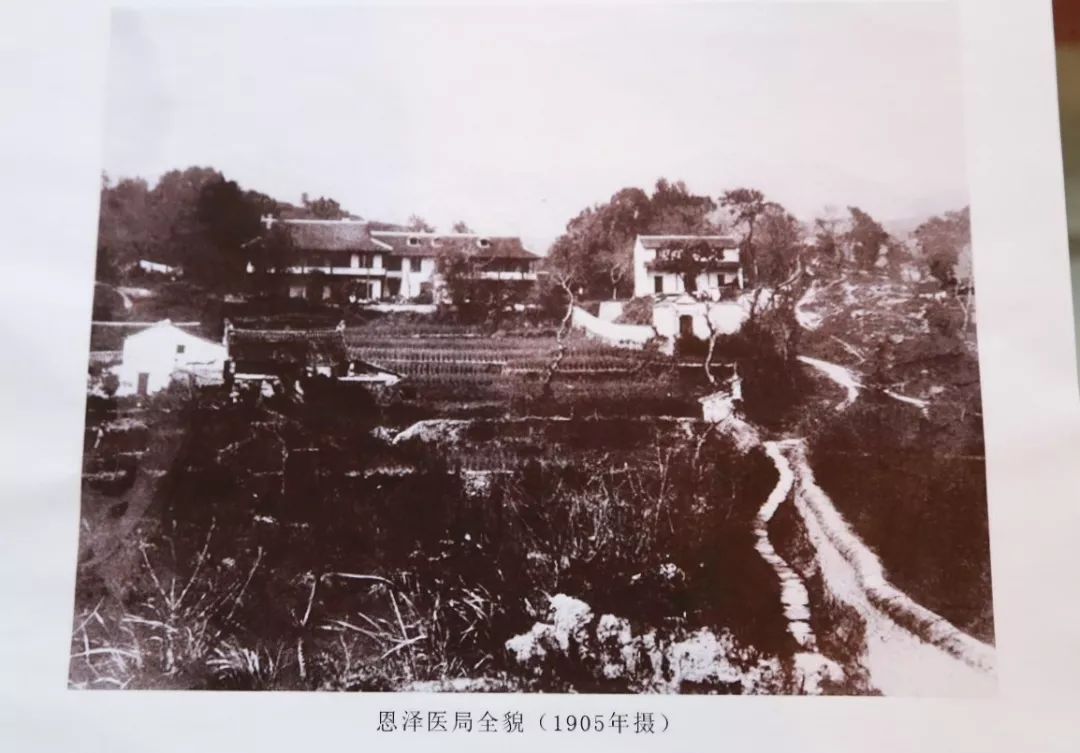
Taizhou Enze Yiju Jiuzhi.
Dining Options
Local Cuisine
Taizhou is renowned for its fresh seafood thanks to its coastal location. Be sure to try local specialties such as:
- Braised Fish: Often cooked with soy sauce and a hint of ginger, this dish is a local favorite that highlights the freshness of the catch.
- Seafood Noodle Soup: A comforting bowl filled with fresh seafood, noodles, and aromatic broth, perfect for a satisfying meal after a day of sightseeing.
- Zhejiang-style Dim Sum: Don’t miss sampling these delicate dumplings, filled with various meats and vegetables, which are steamed to perfection.
Recommended Restaurants
1. Xiaoguan Seafood Restaurant: Known for its extensive menu featuring the freshest seafood, this restaurant is a must-visit for seafood lovers. The ambiance is casual and welcoming, making it perfect for families.
-
Taizhou Old Town Cuisine: Located near the Enze Yiju Jiuzhi, this eatery offers traditional dishes in a charming, historical setting. The menu includes a variety of local dishes that reflect the region’s culinary heritage.
-
Wang’s Kitchen: Famous for its homemade dumplings and local delicacies, Wang’s Kitchen provides a cozy atmosphere that makes it a great spot for a casual meal.
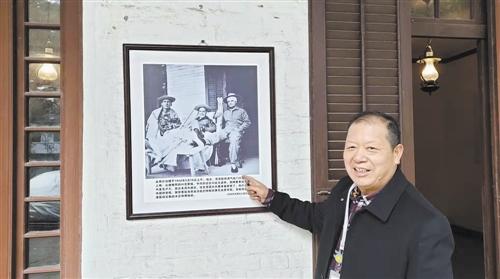
Taizhou Enze Yiju Jiuzhi.
Accommodation
There are several options for staying overnight near the Enze Yiju Jiuzhi, ranging from comfortable hotels to charming guesthouses.
Hotels
1. Taizhou International Hotel: This upscale hotel offers modern amenities, a fitness center, and a restaurant that features both Western and Chinese cuisines. Its central location makes it convenient for exploring the city.
- Hanting Express Taizhou: A budget-friendly option, this hotel provides clean and comfortable accommodations with essential amenities. It’s a great choice for travelers looking to save on lodging while enjoying a pleasant stay.
Guesthouses
1. Liang’s Homestay: Experience local hospitality at this charming guesthouse. Located in a quieter part of the city, it offers a homely atmosphere with personalized service. Guests can enjoy homemade meals made from fresh, local ingredients.
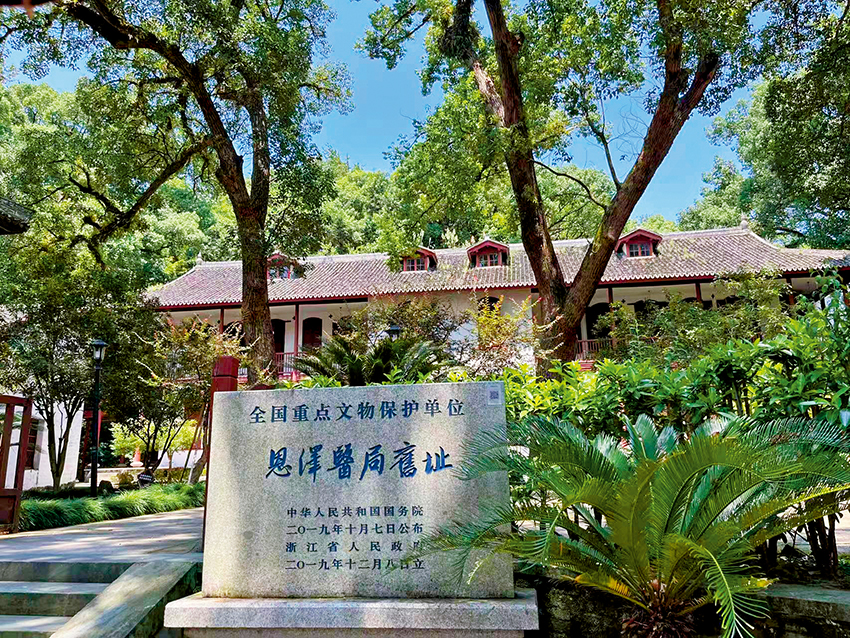
Taizhou Enze Yiju Jiuzhi.
- Cultural Community Guesthouse: Situated within the cultural community, this guesthouse is ideal for those who want to immerse themselves in local life. It features traditional decor and offers guided tours of the historical sites in the vicinity.
Conclusion
Whether you’re savoring the flavors of Taizhou or enjoying the comfort of its accommodations, your visit to Enze Yiju Jiuzhi will be enriched by the culinary delights and hospitality that the region has to offer. Plan your meals and stay to fully immerse yourself in this captivating destination.
Frequently Asked Questions
Frequently Asked Questions about Taizhou Enze Yiju Jiuzhi
1. What is Taizhou Enze Yiju Jiuzhi?
Taizhou Enze Yiju Jiuzhi, also known as the Enze Medical Bureau, is a historic site located in Linhai City, Zhejiang Province, China. Built by British missionary Dr. Stanley Noel Babington in 1901, it is recognized as one of the earliest Western-style hospitals in the region and holds significant cultural and historical importance.
2. Where is it located?
The Enze Medical Bureau is situated at No. 43, Wangtiantai, Cultural Community, Gucheng Street, Linhai City. It is easily accessible and located within the old town area of Taizhou.

Taizhou Enze Yiju Jiuzhi.
3. What is the historical significance of the site?
The site is notable for being the birthplace of Western medicine in Taizhou. It served as a medical institution during a time when Western medicine was gaining recognition in China. Furthermore, the Enze Medical Bureau played a pivotal role in various historical events, including providing medical assistance to American soldiers during World War II.
4. Can I visit the Enze Medical Bureau?
Yes, the Enze Medical Bureau is open to visitors. It has been preserved and restored, allowing guests to explore its architectural features and historical artifacts, including over 100 pieces of calligraphy that reflect its storied past.
5. What are the main features of the Enze Medical Bureau?
The complex consists of three Western-style buildings connected by corridors, all showcasing distinct architectural styles reminiscent of early 20th-century Western design. The main building features a central entrance with an arched stone plaque inscribed with “Enze Medical Bureau.”
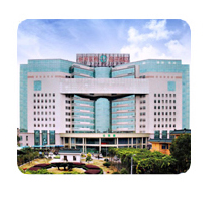
Taizhou Enze Yiju Jiuzhi.
6. Are there any guided tours available?
Yes, guided tours are often available at the Enze Medical Bureau. Knowledgeable guides can provide insights into the history, architecture, and significance of the site, enriching your visit experience.
7. How can I get to the Enze Medical Bureau?
The site is conveniently located in Linhai City, which can be reached by public transportation or taxi from nearby cities. For those driving, there are parking facilities available nearby.
8. What nearby attractions should I consider visiting?
While visiting the Enze Medical Bureau, consider exploring other cultural sites in Linhai, such as the ancient city walls, the Donghu Scenic Area, and traditional streets like Ziyang Ancient Street. Each offers unique insights into the rich history and culture of the region.
Final Thoughts on Your Trip
Visiting Taizhou Enze Yiju Jiuzhi offers a unique glimpse into the rich tapestry of history, medicine, and international friendships that have shaped this remarkable site. As the birthplace of Western medicine in the region, this historical complex stands as a testament to resilience and restoration, having undergone significant efforts to preserve its original charm and significance.
The stories embedded within its walls, from the compassionate care provided to American pilots during World War II to the architectural elegance reminiscent of early 20th-century Western influences, resonate with the spirit of collaboration and humanitarianism. Today, it serves not just as a museum of medical history but also as a cultural beacon that fosters education and patriotism among its visitors.
Whether you are a history enthusiast, a student of medicine, or simply curious about the past, Enze Yiju Jiuzhi promises to enrich your understanding of both local and global narratives. It invites you to step back in time, reflect on the convergence of cultures, and appreciate the enduring legacy of compassion and healing that continues to inspire generations. This is more than a visit; it is an exploration of shared humanity and an appreciation for the paths that have led us to where we are today.
